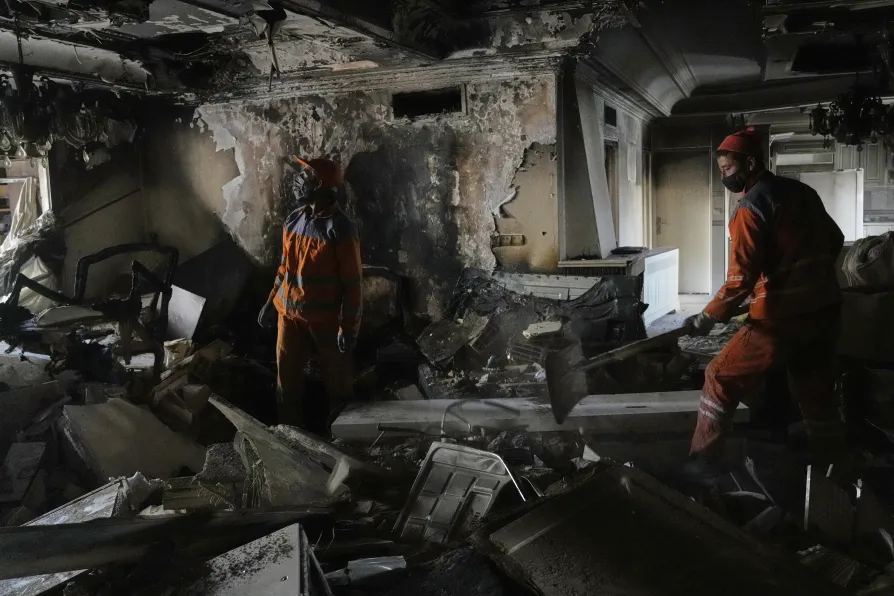
 Workers clear rubble of a damaged building, in Tehran, Iran, June 25, 2025, after an Israeli strike on early Tuesday
Workers clear rubble of a damaged building, in Tehran, Iran, June 25, 2025, after an Israeli strike on early Tuesday
THE White House today doubled down on its claim that US forces had “completely and fully obliterated” Iran’s nuclear programme.
However a US intelligence report suggested that Iran’s nuclear programme had only been set back by a few months, according to two people familiar with the early assessment.
The report issued by the Defence Intelligence Agency (DIA) on Monday contradicts statements from Mr Trump and Israeli Prime Minister Benjamin Netanyahu about the damage caused to Iranian nuclear facilities.
According to the anonymous sources, the report found that while the Sunday strikes at the Fordo, Natanz and Isfahan nuclear sites did significant damage, the facilities were not totally destroyed.
Some experts fear that the illegal US strikes, and the potential of Iran retaining some of its capabilities, could push Tehran toward developing a functioning nuclear weapon.
The assessment also suggests that much of Iran’s highly enriched uranium was moved out of multiple sites before the US strikes and survived. It also found that Iran’s centrifuges, which are required to further enrich uranium to weapons-grade levels, are largely intact, according to the sources.
At the deeply buried Fordo uranium enrichment plant, where US B-2 stealth bombers dropped several 30,000-pound bunker-buster bombs, the underground infrastructure was not destroyed, the assessment found.
But the White House strongly pushed back on the DIA assessment, calling it “flat-out wrong.”
“The leaking of this alleged assessment is a clear attempt to demean President Trump, and discredit the brave fighter pilots who conducted a perfectly executed mission to obliterate Iran’s nuclear programme,” White House press secretary Karoline Leavitt said in a statement.
“Everyone knows what happens when you drop 14 30,000-pound bombs perfectly on their targets: total obliteration.”
The CIA and the Office of the Director of National Intelligence declined to comment on the DIA assessment.
Speaking on Fox News, Mr Trump’s special envoy Steve Witkoff said the strikes had deprived Iran of the ability to develop a weapon and described it as “treasonous” that the US assessment was shared with reporters.
Meanwhile Mr Trump announced today that US and Iranian officials will reopen the dialogue that was interrupted by the unprovoked Israeli attack.
“I’ll tell you what, we’re going to talk with them next week, with Iran. We may sign an agreement, I don’t know,” Mr Trump told a press conference during the Nato summit in the Netherlands.
Iran has not acknowledged any talks taking place next week.













